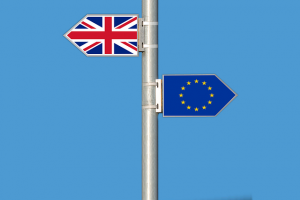 The decision of the UK to leave the EU, voted by the British people in a referendum last June 23, has already begun starting to have an effect in the world economic and social landscape, leading not only to a possible restriction on the free movement of European citizens in the UK, and the negative consequences, but also a range of opportunities related to both the British pound devaluation and to the greater legislative autonomy that the UK may exercise once free from the constraints laid down by the EU.
The decision of the UK to leave the EU, voted by the British people in a referendum last June 23, has already begun starting to have an effect in the world economic and social landscape, leading not only to a possible restriction on the free movement of European citizens in the UK, and the negative consequences, but also a range of opportunities related to both the British pound devaluation and to the greater legislative autonomy that the UK may exercise once free from the constraints laid down by the EU.
As mentioned above, the decision to leave the UK had in the first place a negative impact on the value of the Great Britain Pound (GBP), otherwise known as British Pound.
If 1 December 2015 a British pound was worth, to return, and 1.4213 Euro 1.5065 US dollars, after a little less than a year, October 24, 2016, a British pound is trading at significantly lower values, totaling 1.1234 Euro 1.2235 US dollars [1].
Moreover, the collapse of the value of the British pound does not seem to be finished, as most analysts claim that, within the next few months, the British Pound will be exchanged for an equal value against the euro [2].
The collapse of the British currency is without a doubt a major incentive and an opportunity given to all stakeholders to invest in the UK, because now more than ever proves profitable to invest currencies Euro and US Dollars in the United Kingdom.
This situation certainly deserves due consideration with regard to investment decisions, especially if, as analysts’ forecasts, the British pound, in the short term, would paradoxically reach a value of less than Euro exchange.
Further opportunities arising from Brexit process is represented by the intentions, expressed by the British government after the referendum outcome, the tax rates to be lowered further with reference to the Corporation Tax, the tax on income earned by the companies in the UK.
The steady reduction in tax rates is part of a contingency plan already in place since 2008, when it recorded a tax on corporate income tax rate by 30%.
Since 2008, the rate has gradually decreased to 28% in 2009 to 26% in 2011 to 24% in 2012 to 23% in 2013 to 21% in 2014, reaching the current rate of 20 %. This allows the UK to boast the lesser tax rate among the G20 countries, also in Russia, Saudi Arabia and Turkey. [3]
The desire to further facilitate the landing of new companies in the UK, also in consideration of Brexit each other, however urged the British Government to explain further in the tax reduction program of the Corporation Tax, which according to the intentions will amount to 19% in 2017 and finally to 17% in 2020; according to reliable information, however, the British Government, in the post Brexit, would even considering whether to approve even a rate of 15%, making the UK the country belonging to the G20 with lower tax on corporate income tax [4 ].
This article was brought to you by our members from London, UK, Occari & Partners Ltd.
[1] From italian website http://finanza-mercati.ilsole24ore.com/strumenti/converti-valuta/converti-valuta.php;
[2] Enrico Franceschini, Sterlina in picchiata, per la prima volta l’euro vale di più, www. repubblica.it, 8 ottobre 2016;
[3], [4] R. Barlaam, Londra abbasserà le tasse alle imprese al 17%, Il Sole 24 Ore Mondo, 11 settembre 2016.
